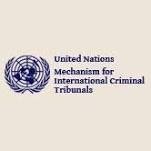Org. Setting and Reporting
This post is located in the Office of the Prosecutor (OTP) of the International Residual Mechanism for Criminal Tribunals (IRMCT), Arusha Branch. The incumbent will work under the direct supervision of the Prosecutor.
Responsibilities
The incumbent will perform the following duties:
- Implements a review of outstanding fugitive indictments and supporting material, prepares an analysis and develops an action plan.
- Provides legal and factual advice and direction to investigators, and oversees development and implementation of investigative plan.
- Coordinates, directs and supervises junior legal officers generally, and on specific projects.
- Prepares and conducts interviews of witnesses.
- Provides legal advice to the Prosecutor and OTP staff on diverse substantive and procedural legal questions which can include questions of considerable complexity.
- Performs extensive legal research and analysis and prepares legal opinions, motions, briefs, reports and correspondence.
- Supervises/carries out case-related legal work.
- Prepares legal documents required for tracking activities and the provision of assistance from national authorities.
- Attends court hearings and advocates before the Mechanism as required.
- Serves on various standing boards, committees, ad hoc working groups and task forces, as required; promotes the work of the OTP and represents the organization at meetings, conferences, seminars, etc.
- Designs and reviews systems and procedures for the OTP concerning legal issues and revises/develops policy guidelines on legal matters as appropriate.
- Performs other duties as directed.
- Professionalism – Knowledge of international legal procedures and instruments, including international criminal law, with a particular emphasis on the legal practice of the ICTR and/or the ICTY. Excellent knowledge of the functioning of criminal investigations and prosecutions at the national and international levels, with a particular emphasis on the investigation and prosecution of complex international crimes. Ability to apply legal expertise to analyzing a diverse range of complex issues and in developing innovative solutions. Excellent analytical skills and proficiency in legal writing and expression and ability to prepare legal documents. Experience and ability to work well in a multicultural environment. Ability to work to tight deadlines and to handle multiple concurrent projects. Good computer skills and ability to use relevant software applications and online legal research tools. Shows pride in work and in achievements; demonstrates professional competence and mastery of subject matter; is conscientious and efficient in meeting commitments, observing deadlines and achieving results; is motivated by professional rather than personal concerns; shows persistence when faced with difficult problems or challenges; remains calm in stressful situations.
- Communication – Speaks and writes clearly and effectively; listens to others, correctly interprets messages from others and responds appropriately; asks questions to clarify, and exhibits interest in having two way communication; tailors language, tone, style and format to match the audience; demonstrates openness in sharing information and keeping people informed.
- Teamwork – Works collaboratively with colleagues to achieve organisational goals; solicits input by genuinely valuing others’ ideas and expertise; is willing to learn from others; places team agenda before personal agenda; supports and acts in accordance with final group decision, even when such decisions may not entirely reflect own position; shares credit for team accomplishments and accepts joint responsibility for team shortcomings.
- Leadership – Serves as a role model that other people want to follow; empowers others to translate vision into results; is proactive in developing strategies to accomplish objectives; establishes and maintains relationships with a broad range of people to understand needs and gain support; anticipates and resolves conflicts by pursuing mutually agreeable solutions; drives for change and improvement; does not accept the status quo; shows the courage to take unpopular stands. Provides leadership and takes responsibility for incorporating gender perspectives and ensuring the equal participation of women and men in all areas of work; demonstrates knowledge of strategies and commitment to the goal of gender balance in staffing.
- Managing Performance – Delegates the appropriate responsibility, accountability and decision-making authority; makes sure that roles, responsibilities and reporting lines are clear to each staff member; accurately judges the amount of time and resources needed to accomplish a task and matches task to skills; monitors progress against milestones and deadlines; regularly discusses performance and provides feedback and coaching to staff; encourages risk-taking and supports creativity and initiative; actively supports the development and career aspirations of staff; appraises performance fairly.
Competencies
- Professionalism – Knowledge of international legal procedures and instruments, including international criminal law, with a particular emphasis on the legal practice of the ICTR and/or the ICTY. Excellent knowledge of the functioning of criminal investigations and prosecutions at the national and international levels, with a particular emphasis on the investigation and prosecution of complex international crimes. Ability to apply legal expertise to analyzing a diverse range of complex issues and in developing innovative solutions. Excellent analytical skills and proficiency in legal writing and expression and ability to prepare legal documents. Experience and ability to work well in a multicultural environment. Ability to work to tight deadlines and to handle multiple concurrent projects. Good computer skills and ability to use relevant software applications and online legal research tools. Shows pride in work and in achievements; demonstrates professional competence and mastery of subject matter; is conscientious and efficient in meeting commitments, observing deadlines and achieving results; is motivated by professional rather than personal concerns; shows persistence when faced with difficult problems or challenges; remains calm in stressful situations.
- Communication – Speaks and writes clearly and effectively; listens to others, correctly interprets messages from others and responds appropriately; asks questions to clarify, and exhibits interest in having two-way communication; tailors language, tone, style and format to match the audience; demonstrates openness in sharing information and keeping people informed.
- Teamwork – Works collaboratively with colleagues to achieve organisational goals; solicits input by genuinely valuing others’ ideas and expertise; is willing to learn from others; places team agenda before personal agenda; supports and acts in accordance with final group decision, even when such decisions may not entirely reflect own position; shares credit for team accomplishments and accepts joint responsibility for team shortcomings.
- Leadership – Serves as a role model that other people want to follow; empowers others to translate vision into results; is proactive in developing strategies to accomplish objectives; establishes and maintains relationships with a broad range of people to understand needs and gain support; anticipates and resolves conflicts by pursuing mutually agreeable solutions; drives for change and improvement; does not accept the status quo; shows the courage to take unpopular stands. Provides leadership and takes responsibility for incorporating gender perspectives and ensuring the equal participation of women and men in all areas of work; demonstrates knowledge of strategies and commitment to the goal of gender balance in staffing.
- Managing Performance – Delegates the appropriate responsibility, accountability, and decision-making authority; makes sure that roles, responsibilities and reporting lines are clear to each staff member; accurately judges the amount of time and resources needed to accomplish a task and matches task to skills; monitors progress against milestones and deadlines; regularly discusses performance and provides feedback and coaching to staff; encourages risk-taking and supports creativity and initiative; actively supports the development and career aspirations of staff; appraises performance fairly.
Education
Advanced university degree (Master’s degree or equivalent) in law. First-level university degree in combination with (2) two additional years of qualifying experience may be accepted in lieu of the advanced university degree. Postgraduate studies in criminal or international law would be an asset. Membership in good standing of any Bar or law society in any national jurisdiction. Standing at an international criminal court or tribunal may be considered in lieu of Bar or law society membership.
Work Experience
Minimum of 7 years of progressively responsible experience in the field of criminal law, international criminal law or international humanitarian law. Prior investigation or prosecution experience at the ICTR and/or ICTY is highly desirable.
Languages
English and French are the working languages of the Mechanism. For the post advertised, fluency in oral and written English is required. Knowledge of a second official UN language is an advantage.


